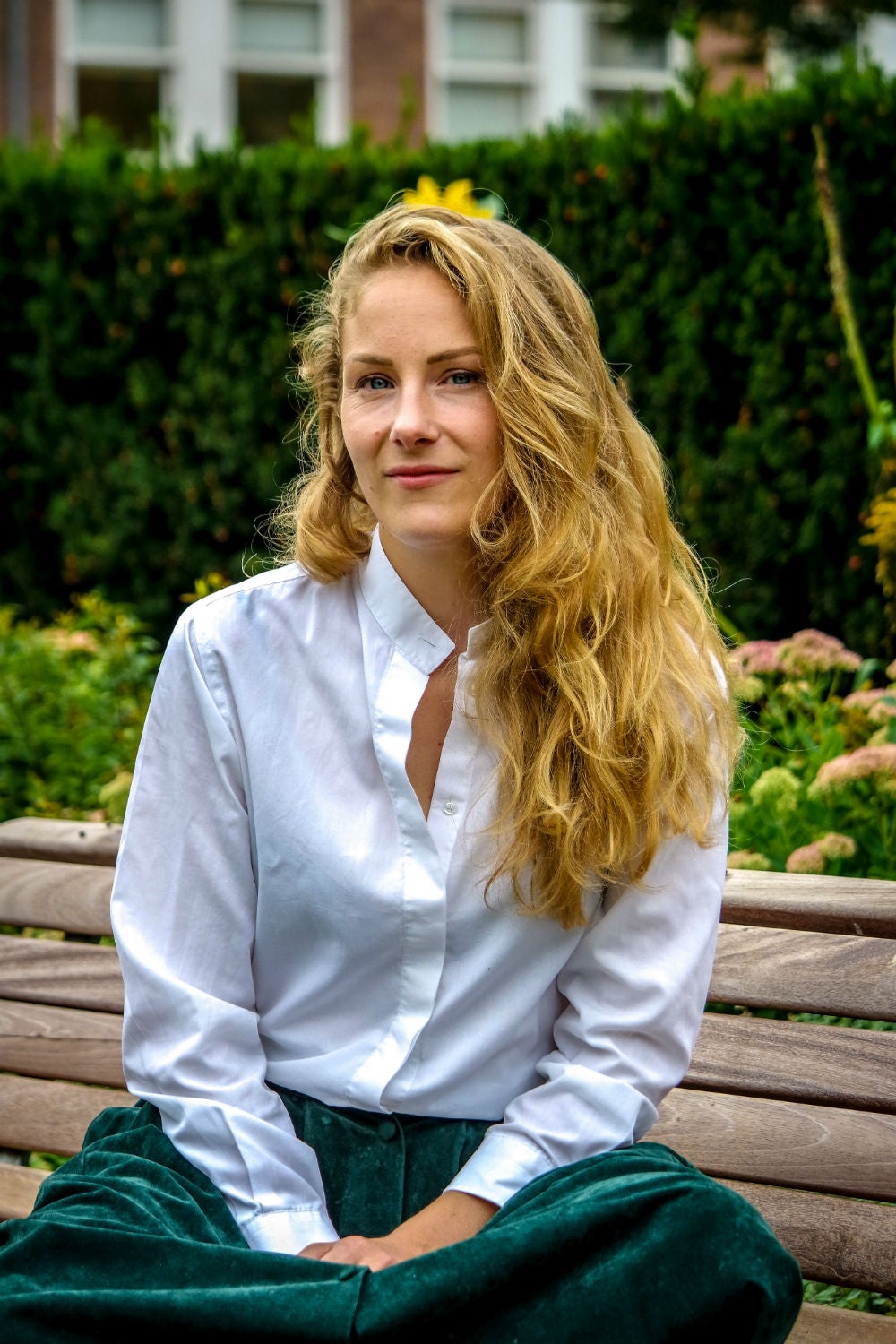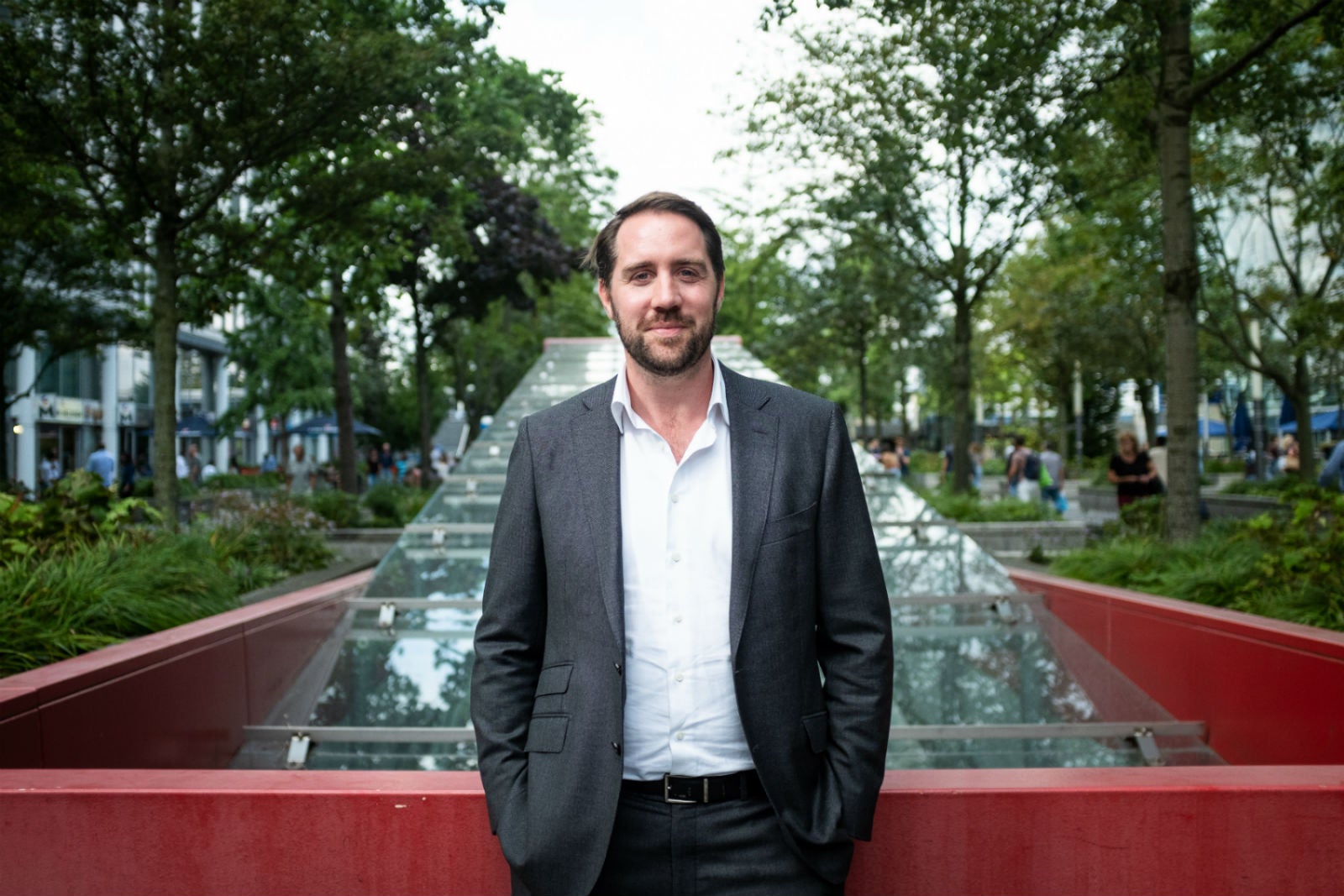At age 19, Susanne Duijvestein (33) started working for Rabobank. Two years ago, she decided to make a radical career change and became a funeral director. Her mission? To change the world of funeral service: „The times in which we would only serve coffee and cake at funerals are definitely over.”
What is your stance on the world of funeral service?
„I have no doubt that the people in this industry have good intentions, but the system itself is sick. The culture of death and saying goodbye has been ‘overly professionalised’. It’s not rocket science, but some pretend it’s an art form – with accompanying, absurdly high charges. I’m not a fan of those standardised funerals; I prefer personal funerals that truly commemorate the life of the deceased.”
What bothers you the most?
„Some parties exploit people who are at their most vulnerable, after having just lost a loved one. For instance, the insurance policy might tell people to call a certain telephone number after someone has passed. Before you know it, you’re stuck with a funeral director. And there are more of these perverse incentives going around; owners of funeral businesses who have, for instance, invested in certain casket brands.”
How do you handle things differently?
„My business model is more honest. Many of those big companies come with hidden costs. Think of large margins on many products; it’s not uncommon for caskets to be sold at twice the cost price. When you hire me, you pay for my services only – the hours I put in. Apart from that, you pay the cost price for everything. I think that’s a more fair way of doing business.”
„Water cremation is a process in which the body is broken down entirely into its chemical components."
„If things were up to me, this industry would change radically. The importance of the funeral director plays too big a role in some cases. Some of them will purchase a refrigeration unit worth 3000 euros, to keep the bodies of the deceased cool. Of course they need to earn that money back somehow and will recommend using it to their clients – not mentioning the fact that there are more pleasant and sustainable alternatives available. Bio Sac for instance, a conservation technique that makes sure the body is preserved at room temperature, which doesn’t make the body feel as awfully cold.”

How exactly is the world of funeral service changing?
„The times in which we would only serve coffee and cake are definitely over. Sushi, champagne, macaroons – I think I’ve seen it all by now. It’s entirely up to what suits the deceased. Soon, we’ll be able to offer more alternatives to cremating or burying, too. Think of water cremation, a process in which the body is broken down entirely into its chemical components. Or composting a body, like the cycle of life – closer to nature. I encounter more and more headstrong people who want to deal with things differently. Looking at it from an anthropological angle, I think that’s the best development.”
How did you end up working in this industry?
„It was all very intuitive and came out of nowhere. I have always been fascinated by the concept of death, however. I studied Public Administration and Organization Science, which taught me how to observe the field and determine what is necessary to work towards transitioning an industry. The future of the funeral service industry wasn’t future-proof and I thought to myself: I should do something about that.”
„Ever since I’ve been dealing with death so much, I’ve been focusing on life more."
What do you like about your job so much?
„The most special part of my job is getting so close to people. Because we deal with such intimate issues, we connect to our clientele on a very deep level. People who used to be strangers not too long ago now feel like family. I hold a special place in their heart, like they hold a special place in mine.”
Has this job changed you?
„Ever since I’ve been dealing with death so much, I’ve been focusing on life more. I’ve been taught many life lessons. Sometimes I’m handling difficult family situations and people dealing with regret. This has caused me to always talk through issues with my own loved ones immediately. My job has also taught me how important it is to celebrate important life events. Celebrate that marriage, organize that corny bachelor party and throw that baby shower. It’s so important. It can all be over in the blink of an eye.”
What would you advise people planning their own burial or cremation?
„Imagine you’re celebrating your birthday next year and you can go all out. What would that look like? What would the birthday party of your life look like? No one would choose a funeral centre in that scenario. If you look at it differently, an entire world will open up. I recently was asked to arrange the funeral of a young guy in his twenties. He was taken away too soon and had been going through a party phase. His funeral really turned into one big party. It started early in the morning and ended at night, in a club. Very special, and it suited him perfectly.”








